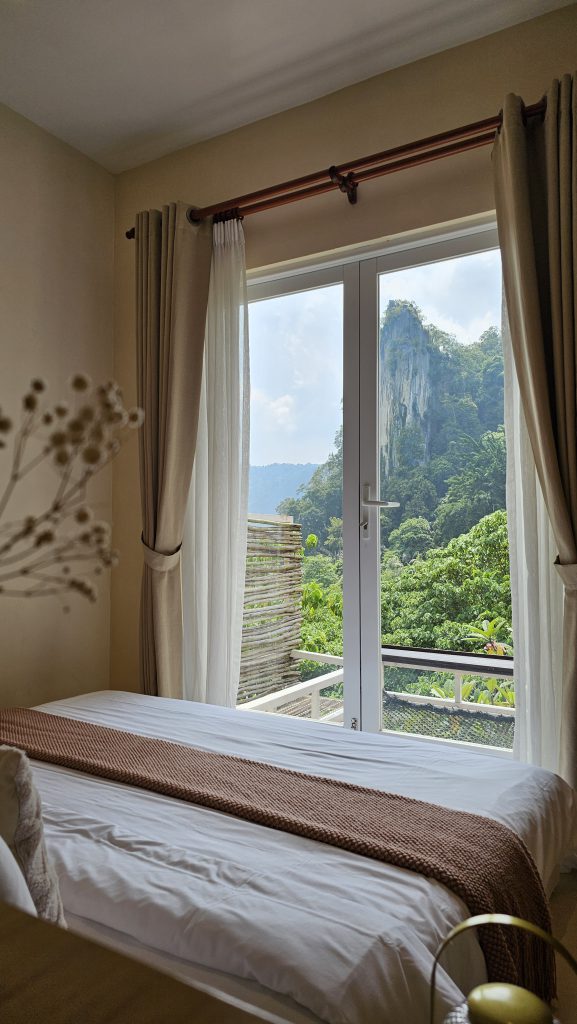S’porean businessman Kiat Lim pledges S$1M for an award that will empower disabled artists
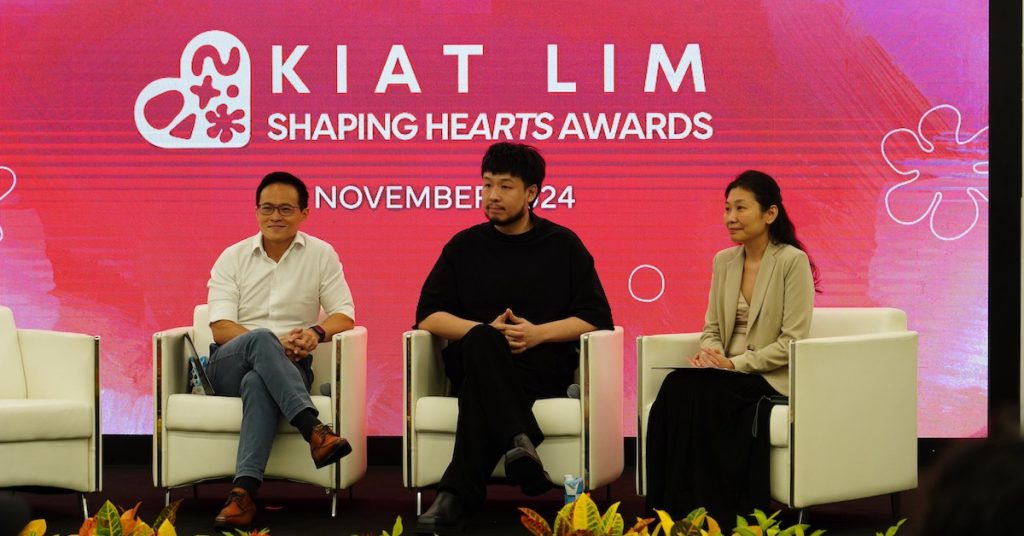
Together with the North East Community Development Council (NE CDC), Singaporean businessman Kiat Lim launched the Kiat Lim-Shaping Hearts Award today (November 20).
Lim has committed S$1 million over the next five years to help for this award, following the success of the first North East HeARTS Award earlier in April.
Shaping Hearts is an inclusive arts festival that is held annually that aims to support persons with disabilities (PWDs) through art. The original HeARTS Award provided 20 bursaries and 10 scholarships this year to PWDs, aiming to support their pursuit of higher education in the arts.
Lim’s donation will allow them to provide additional financial support and expand their reach and impact on the community, as the number of beneficiaries has tripled from 30 to up to 110 recipients annually.

Mr Desmond Choo, Mayor of the North East District, and Dr Deibby Mamahit, who is a functional health practioner and a mother of two children with Autism, were also present at the launch event.
In a fireside chat, Mr Choo expressed his passion for helping PWDs be exposed to bigger opportunities through Shaping Hearts and expressed his gratitude to Lim for his contribution to the cause.
The Kiat Lim-Shaping Hearts Award furthers our mission to break down barriers and ensure that persons with disabilities have equal access to pursue their artistic passions, regardless of their financial background.
We are pleased to work with like-minded supporters like Kiat, whose involvement goes beyond monetary contribution to strategic planning. With his passion for the special needs community and access to the creative industries, we can create new opportunities and larger platforms for our talented artists.
Mr Desmond Choo, Mayor of the North East District in Singapore
All you need to know about the award
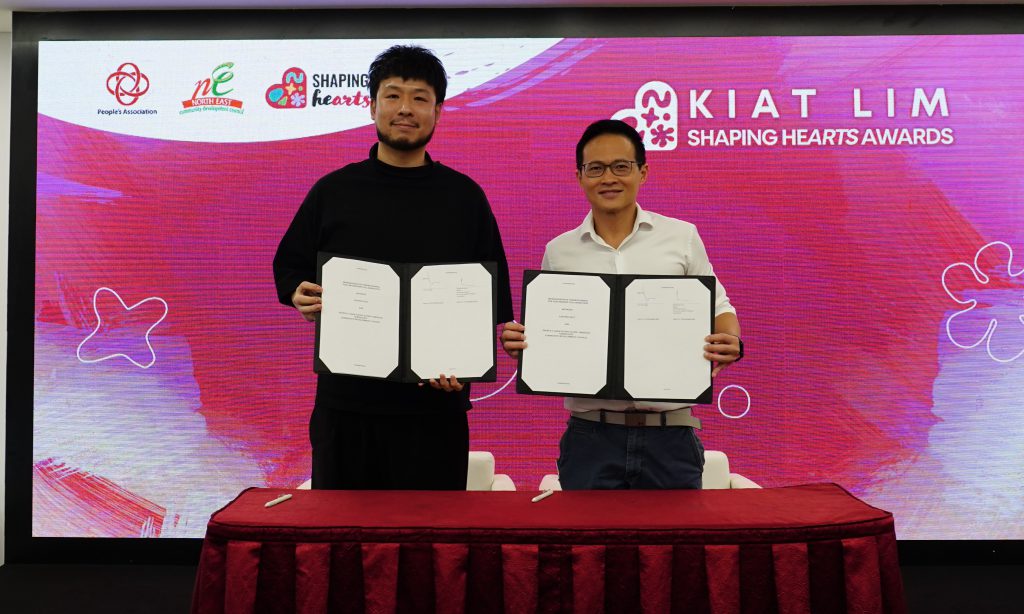
The launch event also featured the signing of the Memorandum of Understanding (MOU), simultaneously opening the call for entries for the award in 2025 and inviting PWDs to submit their applications by January 31, 2025.
The Kiat Lim-Shaping Hearts Award consists of three award categories: the Encouraging Award, the Shining Award, and a new category for children under 7—the Budding Award, in which award recipients will receive a grant of S$1,000 each.
| Grant Type | Kiat Lim-Shaping Hearts Shining Award | Kiat Lim-Shaping Hearts Encouraging Award | Kiat Lim-Shaping Hearts Budding Award |
| Description | For beneficiaries (7 years old and above) who have attained a good level of art proficiency and will like to further develop their skills professionally, including but not limited to: • Learning a new art medium • Engaging a professional mentor/tutor to improve their current skills |
For beneficiaries (7 years old and above) who use art as a foundation in their daily living to express themselves and for personal development, including but not limited to: • Using art as a means of communication • Developing fine and gross motor skills • Developing social skills |
For beneficiaries (below 7 years old) who use art for early intervention to develop important daily living skills including but not limited to: • Developing fine and gross motor skills • Developing social skills |
| Each successful applicant is only allowed to apply for the award once in their lifetime. | Successful applicants for these awards are eligible to apply for the Encouragement / Budding Award once every 24 months. | ||
| Eligibility Criteria | N. A | Gross Per Capita Income of S$1,500 and below | |
| 1. Applicant must be a participant of Shaping Hearts OR residing in the North East district. 2. Applicant should be a Singapore Citizen OR Permanent Resident (must have at least 1 Singapore Citizen family member in the household) AND certified to have a permanent disability*. This includes any one of the following: • Physical Disability • Visual Impairment • Deafness • Autism Spectrum Disorder • Intellectual Disability *Any other conditions not listed will be considered on a case-by-case basis. |
|||
| Award Quantum | S$5,000 | S$2,000 | S$1,000 |
| Recipients | Up to 10 pax per year | Up to 50 pax per year | Up to 50 pax per year |
This is the first award that Lim has personally funded, continuing the Lim family’s philanthropic efforts dating back more than 15 years. Lim shared his aspirations for the programme, adding that art is “a universal language that transcends barriers and fosters connection.”
Through the Kiat Lim-Shaping Hearts Award, we empower children with disabilities to express their unique perspectives, achieve personal growth, and build meaningful ties with the wider community through their artistic talents. By supporting their creative journeys, we’re not just nurturing individual potential but also championing a more inclusive society—one where diverse talents are celebrated and every voice finds a platform to be heard.”
Kiat Lim, Singaporean businessman and Shaping Hearts patron
Also Read: WeWork lets go of 2 prime locations in S’pore, what does it mean for the coworking industry?
Featured Image Credit: Kiat Lim – Shaping Hearts Awards
WeWork lets go of 2 prime locations in S’pore, what does it mean for the coworking industry?

The coworking industry has undergone seismic shifts in recent years, driven by a global pivot to flexible work models. While this change initially fueled demand for shared office spaces, the journey has been far from smooth for pioneers like WeWork.
The company’s decision to relinquish two prime locations in Singapore shines a spotlight on the challenges coworking giants face in a volatile market, Bloomberg reported.
A tough call
WeWork is closing two of its central Singapore locations, marking a significant moment in its local operations.
One of its coworking space spanning the 17th to 20th floors at Manulife Tower along Singapore’s 8 Cross Street has ended operations. Another three-floor space in an office building at 83 Clemenceau Avenue on the city centre fringe will close in 2025.
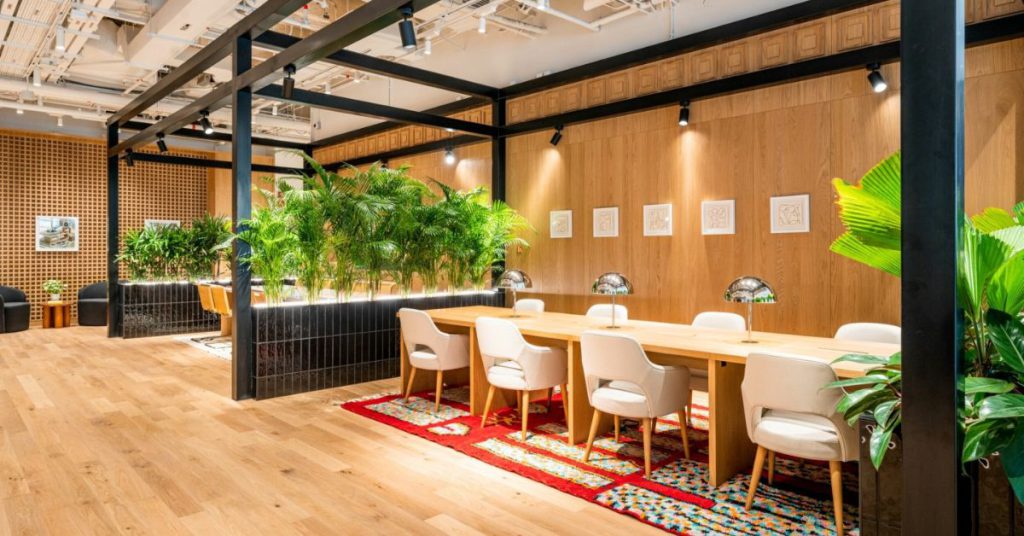
According to Bloomberg, a WeWork spokesperson was quoted as saying that despite Singapore being a “priority market,” it has “made the difficult decision” not to renew leases at the two locations.
WeWork’s decision to close the two locations aligns with its broader global strategy to rationalise real estate and focus on profitability.
The firm will maintain 12 other locations “for the foreseeable future”, primarily in the Central Business District in Singapore. However, the closures highlight a shift in priorities, as the company recalibrates its operations in response to evolving market demands.
The closures come amid a spike in office vacancies in Singapore’s prime locations. Many companies are cutting costs by consolidating office spaces or opting out of coworking arrangements entirely.
For instance, Tencent Holdings recently vacated its WeWork office in Raffles Place for a new prime location, reflecting a broader trend among corporate tenants seeking stability and cost-efficiency.
WeWork’s rise and fall
WeWork’s story began in 2010 with a revolutionary idea—create shared workspaces that foster collaboration and innovation.
By 2019, the company was valued at an eye-watering US$47 billion, making it one of the most valuable startups of its time.
However, cracks in its foundation soon appeared. A botched IPO attempt in 2019 revealed significant issues, including unmanageable debt, questionable management practices under co-founder Adam Neumann, and unsustainable growth strategies.
Neumann’s departure marked the beginning of a tumultuous period for the company.
The pandemic further accelerated its decline. Remote work became the norm, and businesses scaled back on office space, leaving WeWork with underutilised leases. Despite restructuring efforts, including layoffs and lease cancellations, the company continued to bleed cash.
By 2022, its stock price had plunged by nearly 99%, and in November 2023, WeWork filed for bankruptcy. While its emergence from bankruptcy earlier this year signalled a potential turnaround, the global coworking giant remains far from stable.
Global challenges mirror local struggles
The difficulties in Singapore reflect broader problems faced by WeWork globally. Once a shining star in the coworking world, the company seemingly struggled to adapt to a post-pandemic reality where remote and hybrid work models dominate.
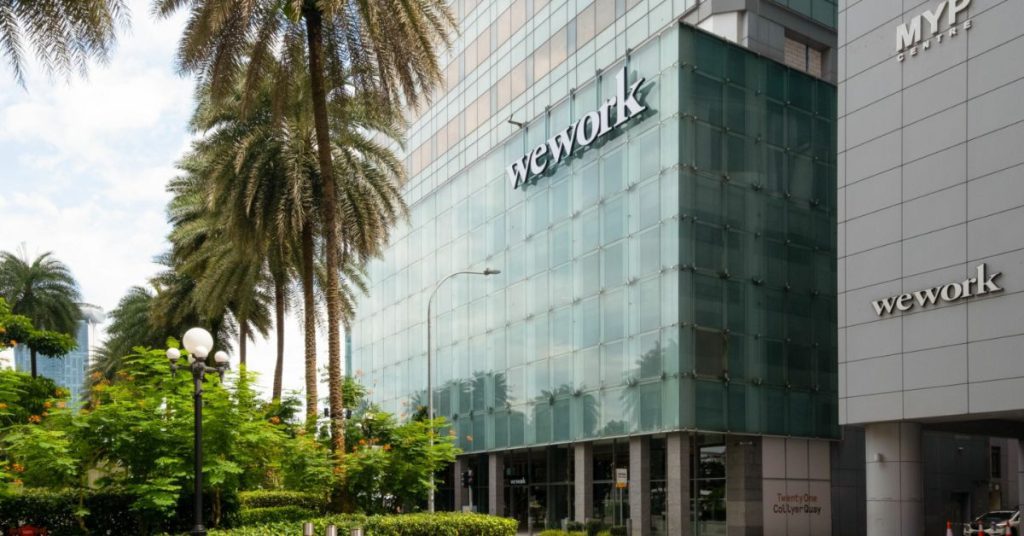
After filing for bankruptcy in the United States, WeWork emerged in May 2024 following a restructuring plan that handed over equity to a group of lenders and technology partner Yardi Systems. The move allowed the company to shed significant debt, but its global footprint has been shrinking.
For instance, WeWork closed its flagship building in Manchester, UK, earlier this year due to lease negotiation failures. Similar closures and consolidations have occurred in other markets, including Europe and North America, as the company strives to rationalise operations.
The pandemic proved to be a major turning point. Once celebrated for its “growth-at-all-costs” model, WeWork’s financial woes were exposed when businesses cancelled leases and workspaces stood empty during lockdowns.
Its approach of prioritising rapid expansion without strong occupancy left the company vulnerable to sudden shifts in demand.
What’s next for coworking?
WeWork’s rise and fall underscore the risks of rapid expansion without a clear path to profitability. Its growth-at-all-costs model, while revolutionary during times of abundant capital, faltered when market conditions changed.
Low occupancy rates, inflated operational costs, and mounting financial risks proved unsustainable.
For the coworking industry, WeWork’s story is both a cautionary tale and a blueprint for adaptation. While demand for flexible workspaces persists, companies must focus on sustainable growth, efficient cost management, and strategic market positioning.
Globally, the coworking landscape remains in flux. WeWork’s struggles highlight the challenges of balancing expansion with profitability in an era of hybrid work. Still, the concept of shared office spaces isn’t going away.
WeWork’s enduring presence in Singapore shows a commitment to the market despite setbacks. On the global stage, its trimmed-down operations and leaner business model may offer a second chance at stability.
Whether WeWork can rebuild its brand and regain its former glory remains to be seen, but one thing is clear: the era of reckless growth is over, and the future of coworking will require adaptability, resilience, and a keen understanding of market needs.
- Read other articles we’ve written about coworking here.
Also Read: This Microsoft Copilot workshop convinced me that AI can help content creators, here’s how
Featured Image Credit: WeWork
Why this M’sian law grad started a biz serving “restaurant-grade” food to pets

Keith Tang, 31, never expected to find himself in the pet food industry. After graduating with a law degree in 2015, he started working at a law firm but quickly realised it wasn’t his calling.
“I knew early on that law just wasn’t for me,” he admitted with a shrug. Determined to explore other avenues, he shifted to tech, where he found a knack for solving business problems.
His initial foray into tech and warehousing systems thrived, catering to big clients like Manpower Group, before he exited the company.
Soon after, he launched a wedding planning business, but like so many others, it fell victim to the pandemic.
StreetPaw, his current endeavour, is born out of Keith’s true passion: animals. He recalled, “My first words were ‘bird, dog.’ I’ve loved animals ever since I was a toddler.” Over the years, he took in all sorts of pets, from dogs and birds to fish, and his grandmother’s love of ornamental fish left an early mark on him.

However, it wasn’t until a candid conversation with Catherine Goh, a close friend and food industry expert, that his love for animals found its path in the pet food industry.
“She asked me what I loved when I was 12 years old,” he told Vulcan Post. “I said animals and football. That’s when she urged me to think about which of these could actually be a career. I had to consider that seriously.”
From stray feedings to gourmet pet cuisine
Initially launched in 2021, StreetPaw aimed to provide a centralised database for microchipped pets and organise adoption drives. But it soon evolved when Keith began to focus on pet nutrition.
“I didn’t see it as filling a gap in the market—it was more about my love for real food and my frustration with the lack of it in pet diets,” he explained.
Processed kibble wasn’t enough, in his opinion. He wanted pets to enjoy real, restaurant-grade food. “Our meals are human-grade, which sounds fancy, but it’s about using real food—ingredients that you and I would eat at a restaurant,” he said. “Actually, some of our human customers enjoy it too.”
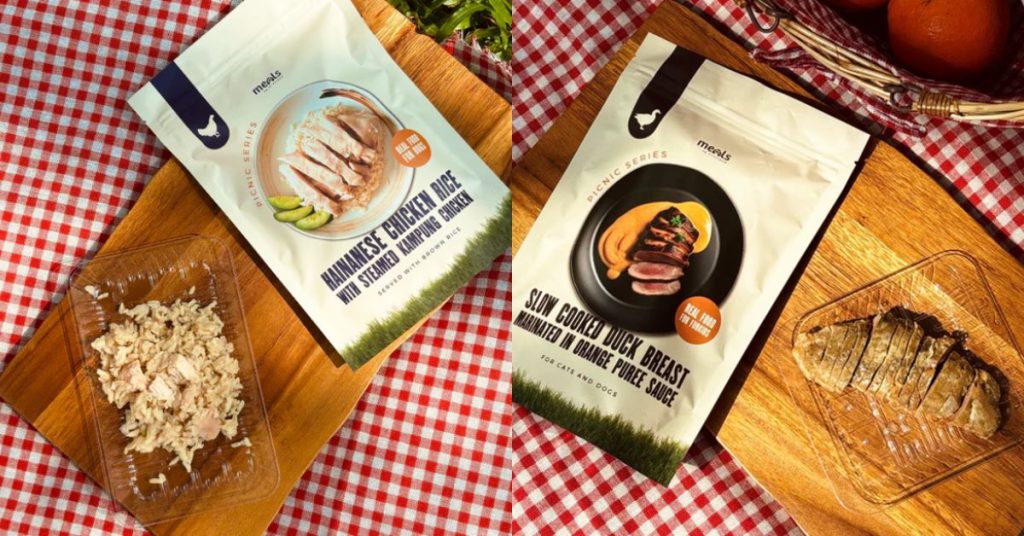
StreetPaw’s menu is crafted with ingredients from reputable suppliers, such as TPL Fresh Meats and Pok Brothers, who also supply to fine dining establishments. This partnership ensures premium quality, from Australian lamb to Atlantic salmon.
One eyebrow may go up at the idea of pets needing such quality, but Keith insists it’s about transparency and quality.
He emphasises that “Each ingredient comes with detailed sourcing information, like halal certification and slaughter dates. We want pet owners to know exactly what’s going into their pet’s meals.”
The nutritional backbone
StreetPaw’s signature product is its nutrient-rich broth, available in five flavours: kampung chicken, duck, Australian lamb, Australian beef, and Atlantic salmon.
“The broth series is our best-seller,” Keith beamed. “We’ve sold over 10,000 bottles so far.”
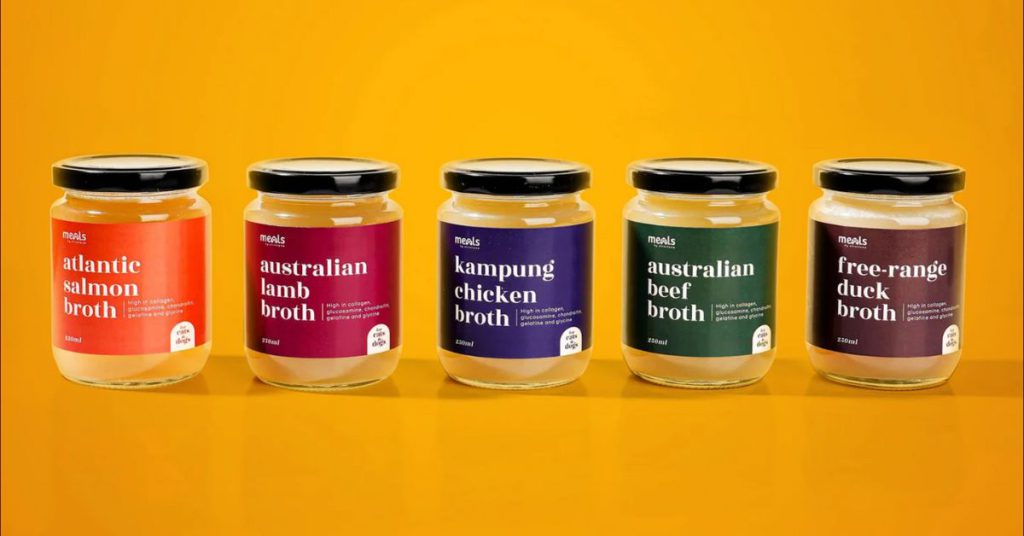
Initially, the broth was designed to aid his own dog, Roxy, who suffered from gastrointestinal issues. After countless vet bills, a nutritionist suggested a special broth formula. “Within a week, Roxy’s issues were gone,” he shared.
StreetPaw’s broths are carefully crafted to cater to pets with dietary restrictions, including those with heart or kidney issues.
By double-boiling the broth and manually removing fats, they’ve created a low-fat, nutritious option that appeals even to picky eaters. Veterinary endorsements have only added to StreetPaw’s credibility.
According to Keith, Professor Madya Dr. Malaika Watanabe, a respected veterinarian, has praised the product, saying, “StreetPaw’s broths are a godsend for pet parents. Many sick pets take a liking to it, and once they eat, it’s a huge relief.”
Real food, real challenges
The pet food industry is unregulated, which Keith admits has posed challenges.
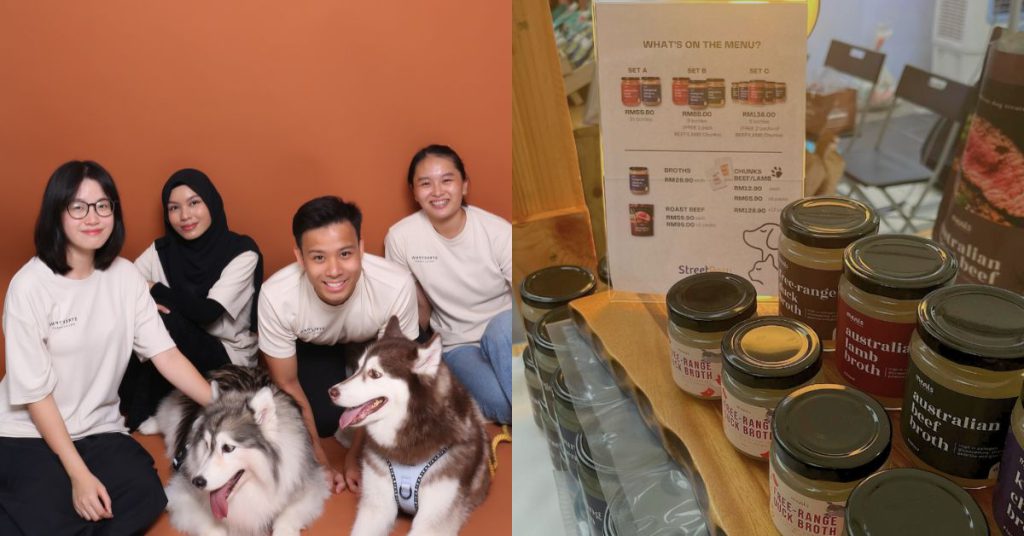
“It’s frustrating that there are no clear guidelines on what ‘human-grade’ even means,” he shared, “but we take it seriously.
That’s why every batch is cooked in-house under strict supervision.” Each kitchen staff member must be certified by Malaysia’s Ministry of Health and receive typhoid shots every two years.
Keith himself doesn’t have a food safety certificate, though he’s taken a course to understand it all. “For us, it’s about consistency and integrity,” he said.
“We don’t outsource because we want to guarantee quality, even if it’s slower and more labour-intensive.”
Although some sceptics argue that kibble offers a more balanced diet at a lower price point, Keith is unfazed. “Kibble isn’t our competition,” he said bluntly.

“Our customers understand the difference. They’ve often tasted our products themselves. Once they see it’s actual food and not just chunks of kibble, they get it.”
Finding his niche
StreetPaw’s customer base has grown organically, largely through word-of-mouth. “Our customers come to us because they’re seeking a real difference for their pets,” Keith said.
The transparency and hands-on care StreetPaw offers have built a strong community of pet owners who see the benefits firsthand.
Still, while the product might be impressive, there’s an inescapable question about StreetPaw’s price point. Can something this high-end cater to the average pet owner?
“We don’t want to justify our higher price points endlessly. Our ingredients and methods speak for themselves.”
For Keith, StreetPaw’s appeal goes beyond profit. “We’re not here to chase trends,” he stated. “We want to make real food accessible to as many pets as possible.”

The price for a bottle of premium broth is RM29.90, whereas his Roast Series can range from RM59.90 to RM79.90.
Though their cautious, demand-driven model may limit rapid expansion, Keith insisted that maintaining quality is his priority. “I’d rather focus on what we’re good at than offer a broad but mediocre selection.”
Lessons in passion and purpose
In the short term, Keith has his sights set on making quality, fresh pet food affordable through economies of scale, hoping that more animals can experience the benefits of real food without financial burden.
Long-term? Keith’s goal is ambitious but grounded: to make restaurant-grade food accessible to as many pets as possible.
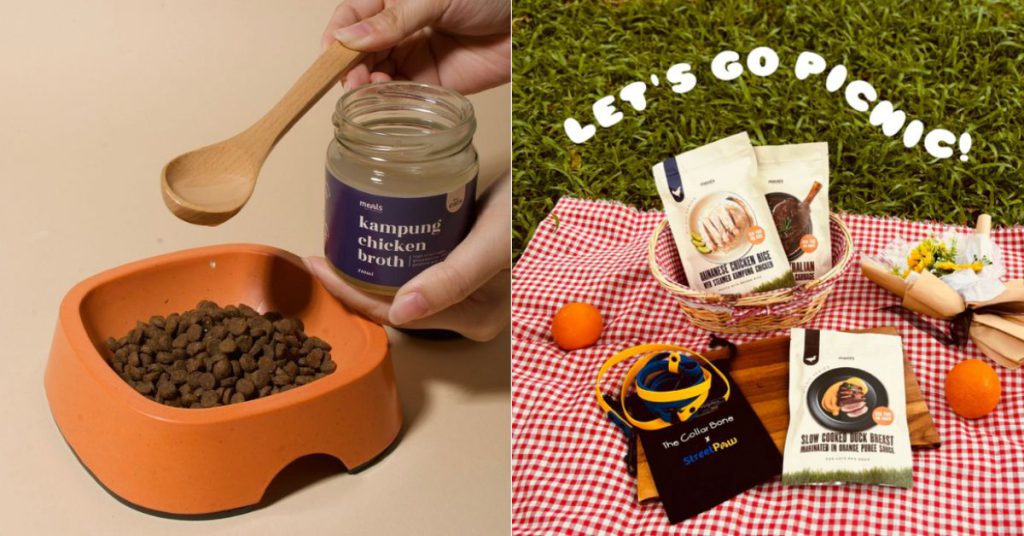
When asked what he’d say to entrepreneurs hoping to align business with passion, Keith reflects on the same question that set him on the StreetPaw path.
“What do you still love that you loved at 12? And how can you use that to improve others’ lives?”
He elaborated, “Then, think about how you can help others with that passion. That’s where the fulfilment and, eventually, the success come from.”
His own journey shows that the answer may not be obvious at first, but finding it can make all the difference.
As Keith continues his journey, he’s proving that the right mix of purpose and passion can feed not just his customers’ pets, but a whole new way of looking at what’s in the pet food bowl.
- You can learn more about StreetPaw here.
- Read other articles we’ve written about Malaysian startups here.
Also Read: MDEC linked M’sian startups with Thailand’s tech scene & identified deals worth RM200M so far
Featured Image Credit: StreetPaw
I had no idea Rawang could be such a beautiful getaway until I visited this villa resort
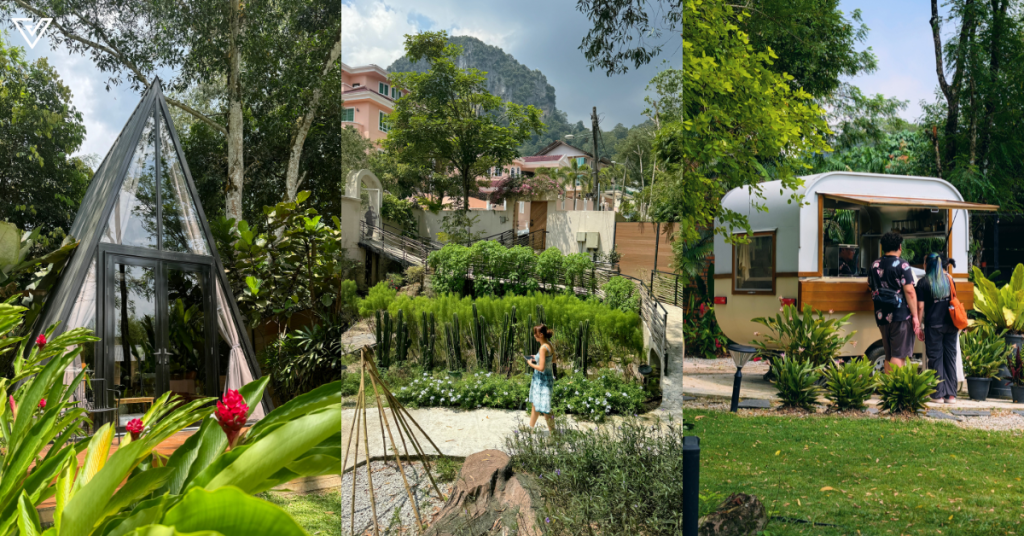
I didn’t think Rawang could be an idyllic vacation destination until I set foot onto Villa Takun’s grounds.
The soft chirping of birds, the rustling of leaves, the distant bleating of goats—this harmonious soundscape was the perfect backing track to the picturesque property in Templer Park.
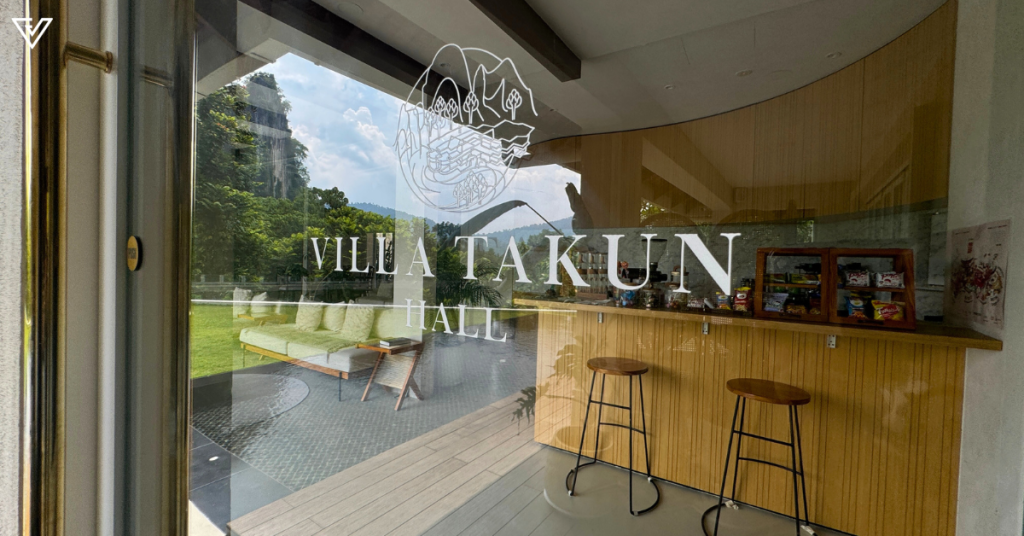
More than just a villa, the location also comprises a “glamping ground”, a dipping pool, gastronomic offerings, and more. The glamping area is on one lot, while the villa itself is on another.
An outdoorsy charm
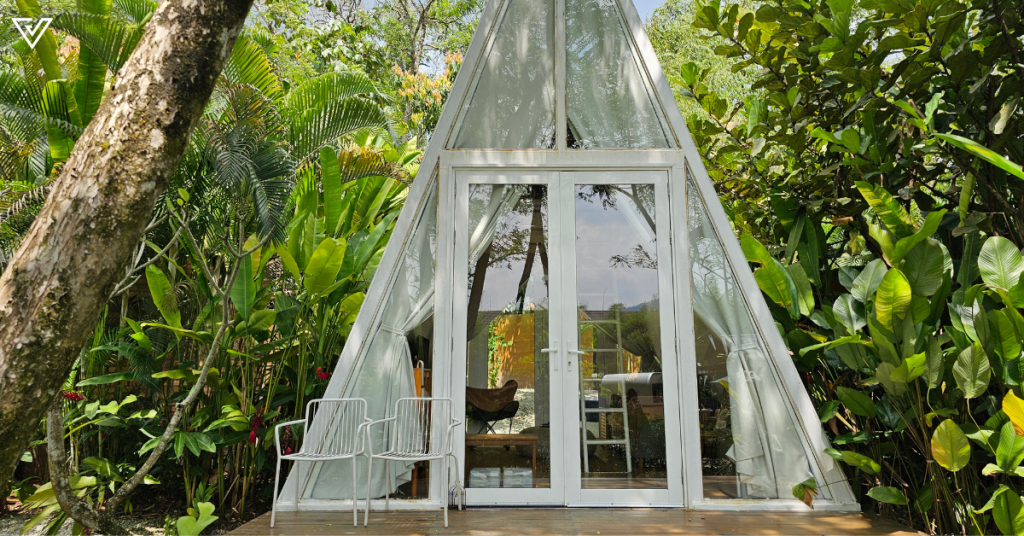
If you’re a nature lover, the glamping side of Villa Takun might be your preferred pick. For accommodations, there are two caravans and two A-frame homes, suitable for up to four guests each.
Each of these options features an outdoor baththub, but don’t worry, there are private showers as well.

On the field itself, you can play some soft archery (where the arrows are suction cup-tipped), or chill in one of the surrounding tents.
There are some ducks and goats kept here, but as the team groundskeepers were doing some work during our visit, we weren’t able to see the animals roam and graze on the grass freely.
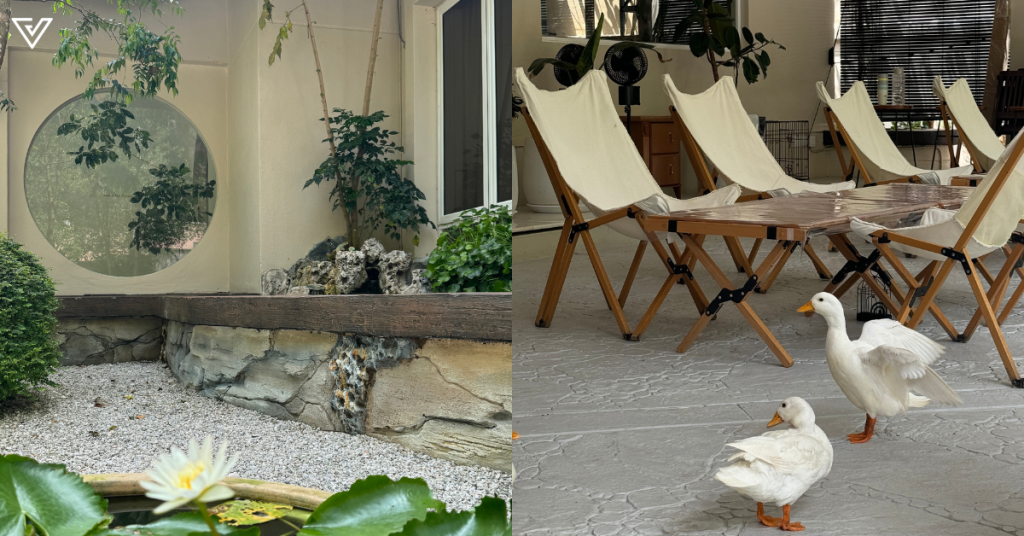
Aside from the accommodations, there’s also a small caravan parked next to a glasshouse. This would be Köré, a café by Villa Takun that’s typically reserved for its own guests. Aside from cakes and coffee, they actually serve hot, nutritious meals too.
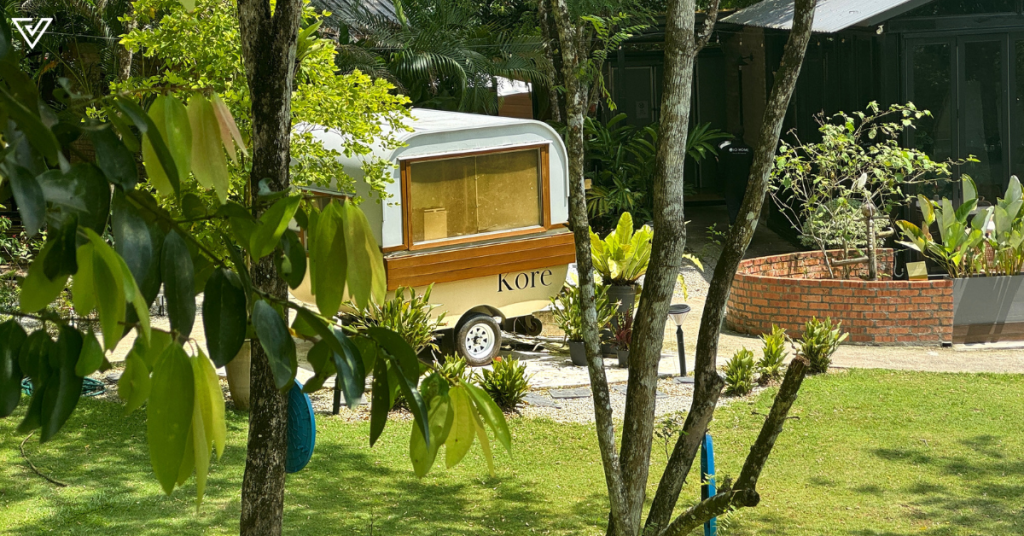
Admittedly, I didn’t expect anything particularly delicious from the café. So, imagine my surprise when I bit into my smoked duck rice bowl and was met with rich textures and flavours. Likewise, my colleagues enjoyed their food too.
A hidden oasis
Onto the other side of the property, there’s the Villa Takun Hall, The Villa Takun Suites, and The Tropical Rooms. If you’re looking for something more luxe, but still just as peaceful and serene, this side would be more suitable for you.

The Villa Takun Suites is perhaps the grandest offering. Departing from the minimalistic style that encompasses the rest of the property, these suites feature a Marrakech-inspired design with warm, reddish hues.
Here, you’ll find an infinity dipping pool, the Aman Takun lounge, and a dining hall—all featuring the Moroccan-inspired interior styles.
The Tropical Rooms refer to the rooms in the main villa. With a more minimalistic approach, these rooms feature rattan, warm wood tones, and lush green touches. There’s even rooms with a sky hammock.
Complete with a natural limestone finish, the Villa Takun Hall is, for a lack of a more effective word, very aesthetic. With cream tones and wood elements, it’s a calming area to kick back or even host a small event. We saw a wedding photoshoot going on in there when we visited.

Right outside, there’s a pool that offers stunning views of Bukit Takun. More of a dipping pool, it’s not exactly designed for guests to swim laps, but it certainly makes for a relaxing space to gaze at the surrounding landscape.
If you’re someone who loves getting that picture-perfect snapshot for Instagram, there are ample opportunities here. From the courtyard to the lounge, every corner is designed to be a gorgeous backdrop.
Oh, and what’s a getaway without the quintessential relaxation experience? The Villa Takun Spa offers treatments that incorporate Claire Organics, a fellow homegrown business.
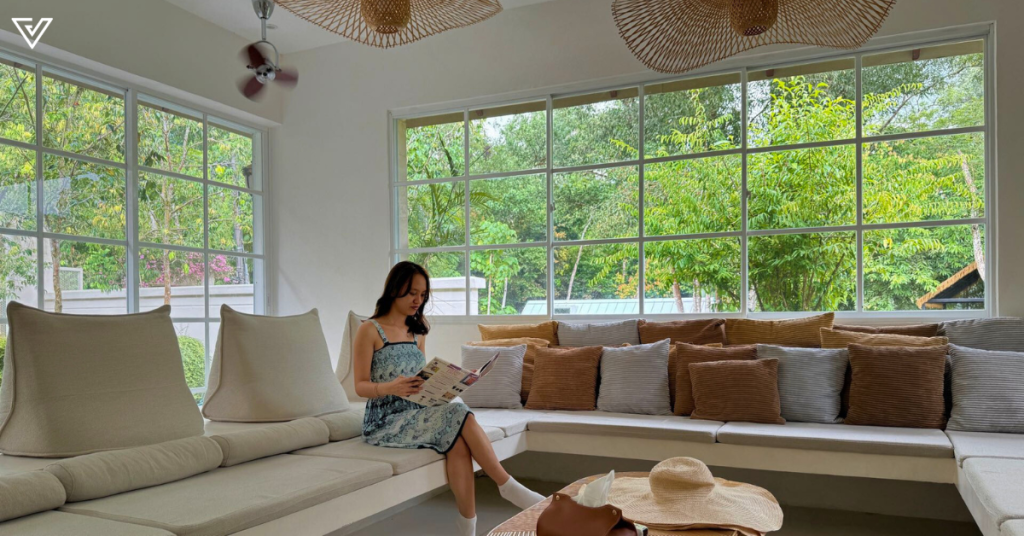
Villa Takun also hosts workshops on its property, including drawing lessons, bath salts-making sessions, and custom keychain creations, so be sure to check with the staff what they may have in store for you.
There’s also a Theatre Room here, perfect for movie nights.
Last but not least is The EDible.
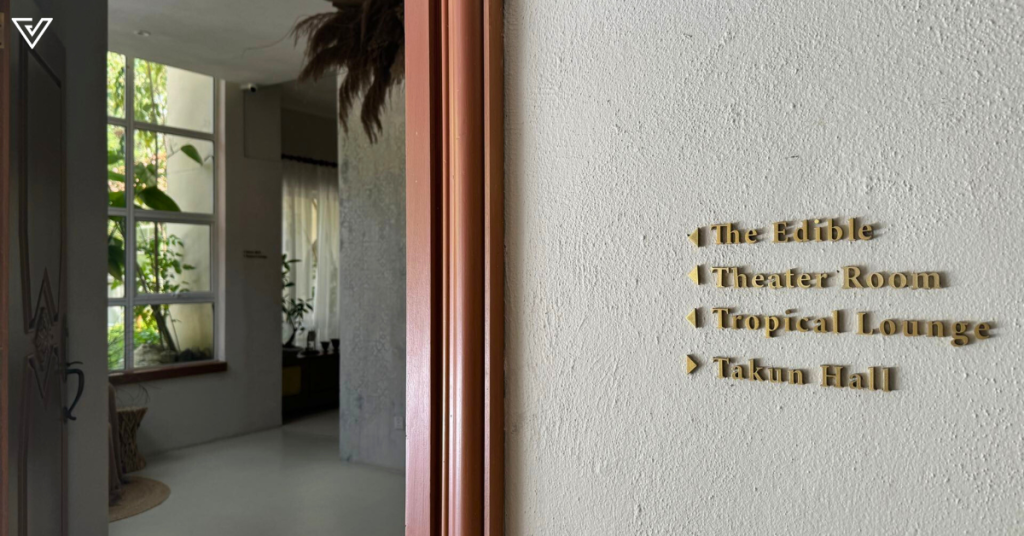
The brainchild of Chef Edwin Eiap Y. L., this is a private dining experience that experiments with unique ingredients. Seating is limited, serving only up to 12 pax at a go.
Mindful of their environmental impact, The EDible strives to minimise food waste and even grows their own plants from the Edible Garden—Villa Takun’s very own flowers and herbs garden.
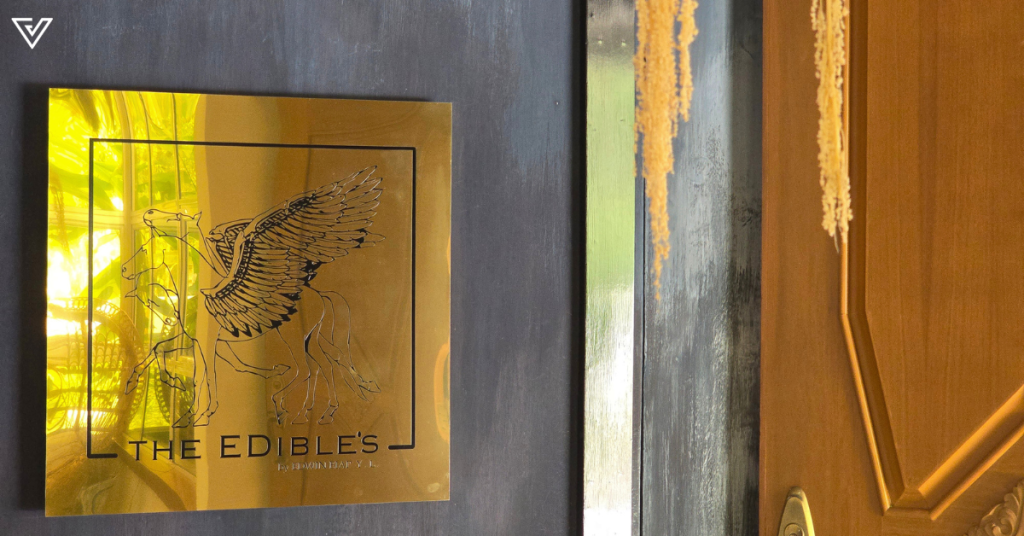
We’re told that interested guests can request for a tour of the garden and even take a bite of the organically grown flowers and herbs.
While we weren’t able to give The EDible (or the Edible Garden) a taste, it sounds like a great option for gourmands and foodies.
The ideal escapade
En route to Villa Takun, I hadn’t expected much from the visit. Sure, I expected beautiful sights, based on the images I saw online, but even so, actually being in the space still wowed me.
But more than that, it was how presentable and well-fleshed out the space was that impressed me.
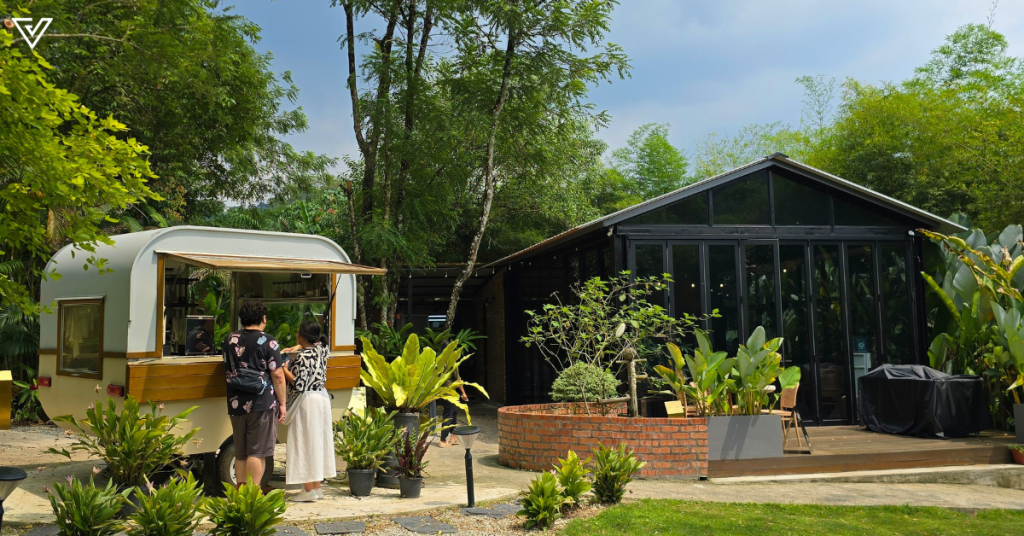
I myself am a proponent of hotels, especially ones by international chains such as Marriott or Hilton. More than the branding, it’s because I know I can expect a standard level of service, hospitality, and cleanliness that leaves no room for surprises—good or bad.
But, as Villa Takun showed me, some surprises can be worthwhile. Managed by IO Home, which also has properties like Dolomite Templer and The White Cottage, the property is lush but also thoughtful, with many amenities, leisurely activites, and a crew of hospitable staff members.
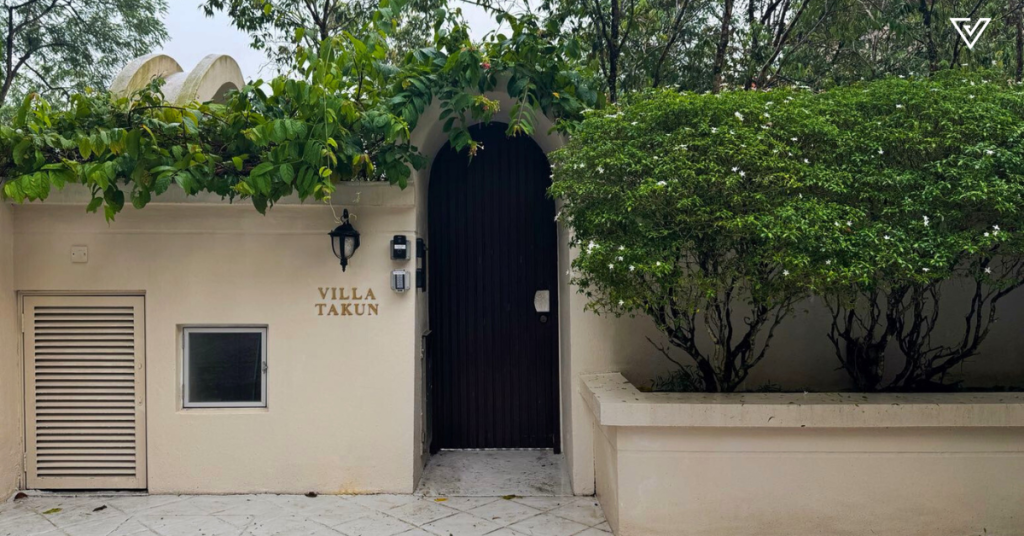
That said, we didn’t actually stay at Villa Takun, so we can’t attest to the full extent of their services.
Still, our visit there showed us that if you’re looking to get away from the hustle and bustle of city life, Villa Takun makes for a visit-worthy retreat.
Also Read: This Microsoft Copilot workshop convinced me that AI can help content creators, here’s how
All Image Credits: Vulcan Post
